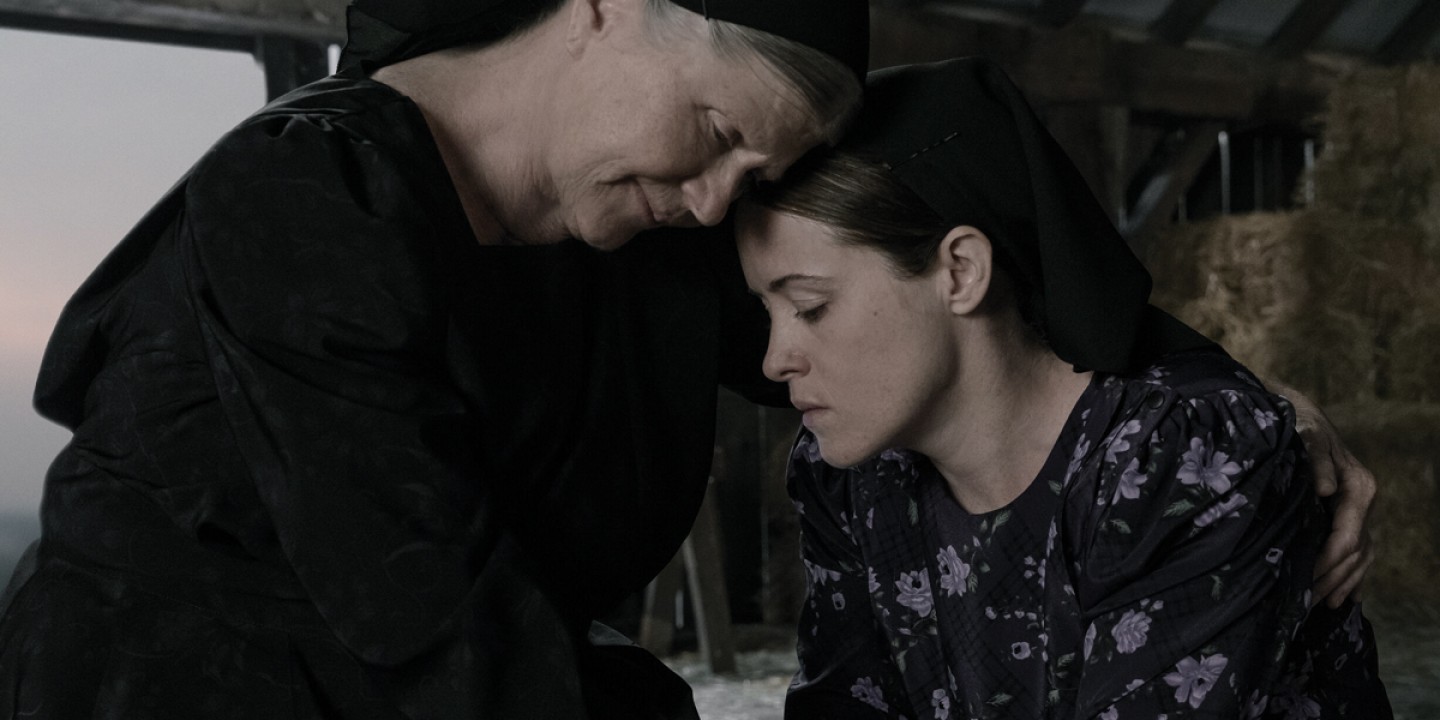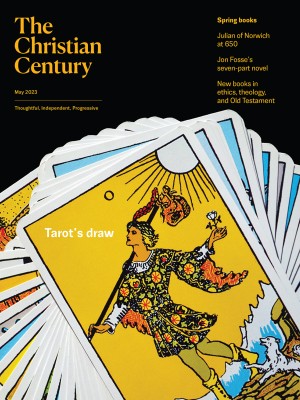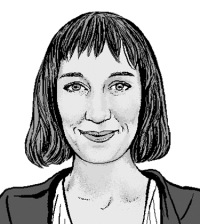When women speak more than truth
She Said and Women Talking examine the collective power of women’s words for a MeToo era.

It is easy to forget that the MeToo movement started as an act of speech. Beginning in 2006 with activist Tarana Burke and then more widely in 2017, women used the phrase on social media to share their stories of assault, harassment, and retaliation across class and profession. For anyone willing to listen, MeToo was a digital cacophony of women’s voices speaking about experiences that had been diminished, denied, shamed, or covered up.
This collective act of women talking is the focus of two very different recent movies. Maria Schrader’s film She Said (streaming on Peacock and available for digital rental) follows the two New York Times reporters—Jodi Kantor (Zoe Kazan) and Megan Twohey (Carey Mulligan)—who broke the story of Harvey Weinstein’s decades-long pattern of predatory sexual harassment and assault in Hollywood in 2017. The film’s central dramatic action is convincing women to talk. “I feel like there are a lot of women who have been through something with him, but they find it hard to talk” Jodi confesses to Megan. “It’s hard to get women to talk,” Megan admits, and even harder if they are alone in telling their stories.
Read our latest issue or browse back issues.
She Said is remarkably restrained, almost muted. Much of the movie is spent watching Jodi and Megan travel long distances to show up at a source’s home—only to have a door slammed in their faces—or pacing, cellphone pressed to ear, no one picking up. Half of their work is sitting in silence, waiting to listen.
When women do agree to talk to them, they will only do so privately, off the record. Jodi and Megan hold the grief, pain, and fear of these stories in the space between themselves and the interviewee, but their promise of confidentiality means they can never connect these women and bring their voices together. “Maybe if we had been able to get them all into a room together,” Jodi laments, when it seems like none of their sources will go on the record to speak publicly against Weinstein. Maybe, she implies, they would have realized they were not alone and been willing to speak out together.
Women Talking (directed by Sarah Polley) imagines exactly this: gathering women in a single room to speak about their attacks and determine their future actions together. This story, too, is based on a real history of atrocious violence against women. In an Old Order Mennonite colony in Bolivia, over several years in the early 2000s, men in the community drugged and viciously raped nearly 300 women and girls, ranging in age from three to 65. If they spoke out, women were accused of lying or told that the attacks were the work of evil spirits preying on their weak faith. In 2010, some of the men were caught and finally confessed; eventually eight men were convicted by Bolivian courts.
Polley’s movie imagines a two-day period when all the men in the community have left the colony to bail the arrested men out of prison. (It’s based on a Miriam Toews novel, which was reviewed in the Century.) The women are told they must forgive the men when they return or face excommunication and eternal perdition. Though they have never been taught to read or write, cannot locate their colony on a map, and know almost nothing about the world outside, the women hold a secret vote to decide if they will “do nothing, stay and fight, leave.” The overwhelming majority vote for either the second or third option, and a small group is elected to decide between fighting and leaving. Those women gather in a barn to talk. We spend the rest of the movie listening to them.
Their talking is at times consciousness raising and therapeutic sharing, the first time they have named to each other all they have borne silently in their wounded bodies and spirits. It is also a way toward wisdom, a means of excavating intuition and self-knowledge. The women are in the process of figuring out how to make collective decisions. And because they are wrestling with the deeply held tenets of their faith—the providence of God, the life of faithful service, the abdication of violence and human laws for the greater law of the kingdom of heaven—their talk is also a means of doing theology, of arriving at new understandings of themselves in relation to God and each other.
This is a kind of talking beyond speaking the truth. They are profoundly aware that truth can be distorted by men with power, that theology can be marshaled to call some truths the work of the devil and enshrine other lies as the authority of God. “The men have taught the lesson of power to the boys, and they have been excellent students,” Agata (Judith Ivey), one of the colony’s elder women, explains.
Sometimes Jodi and Megan glimpse these darker realities too. “It is like an ocean of wrongdoing,” Jodi laments. “I mean, can you imagine how many Harveys there are out there?” Megan responds by wondering whether the low level of depression that women often feel—that she felt upon giving birth to her daughter—is the result of living in a world permeated by violence toward women, enacted or implied. Nondisclosure agreements, threats of retaliation, and rumors that derail a career are the secular equivalent of devil spirits and excommunication.
She Said is a brave film that reveals the high stakes of the act of speaking out as an end in itself: the truth is better than lies; knowledge is better than denial; women deserve to be heard and believed. This kind of speech may not be able to turn the tide of the ocean of wrongdoing, but it must be said anyway. Women Talking believes this too, but it is after it engages in something much more profound, something closer to the world of fable. The genre is hard to pin down; the style is measured and realistic, everything unfolding as though it really happened—though it did not. As a banner on an opening screen announces, “the following is an act of female imagination.”
The result is something more powerful than any historical reenactment could offer. The more they talk the more the women begin to articulate a vision of the society they want, one that cannot be granted by a newspaper or even a court. With their words they begin to weave a new theological vision of nonviolence so faithful it rejects even patriarchy and manipulation, of safety so profound it establishes the peaceable kingdom on earth, of love so real it casts out fear. They articulate something that is beyond the power of speech to provide. But for us, watching this film, their talking makes it possible to believe.
* * * * * *
Jon Mathieu, the Century's community engagement editor, engages Screen Time columnist Kathryn Reklis in conversation about this article.







